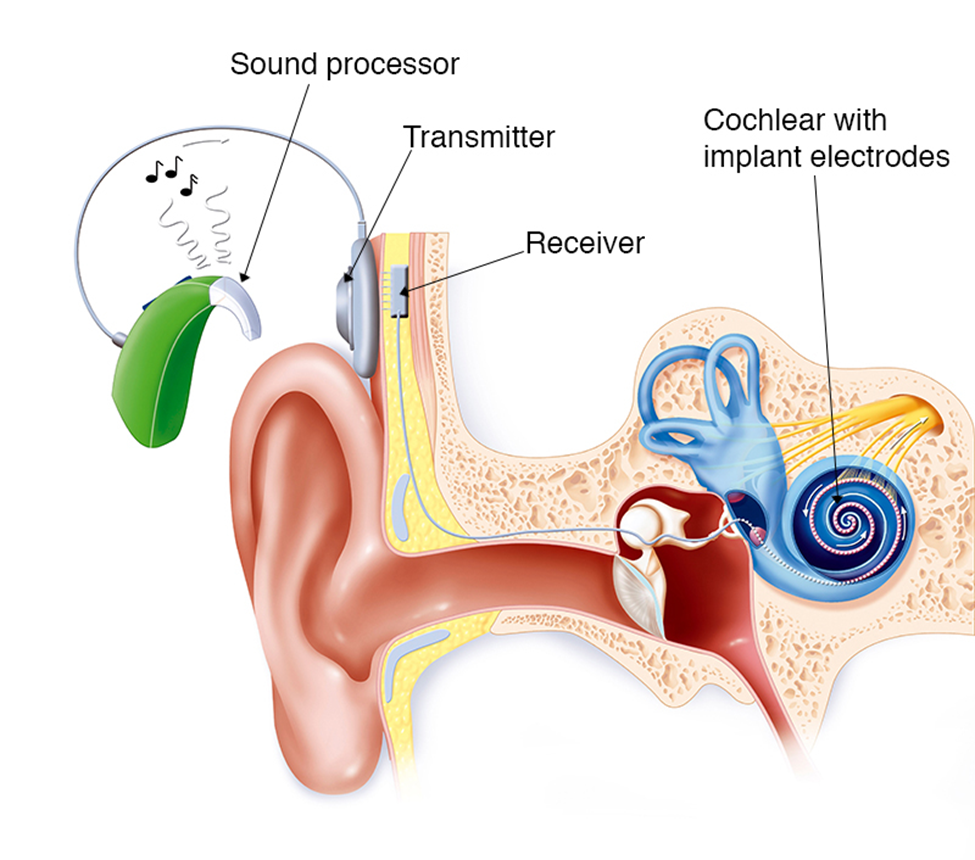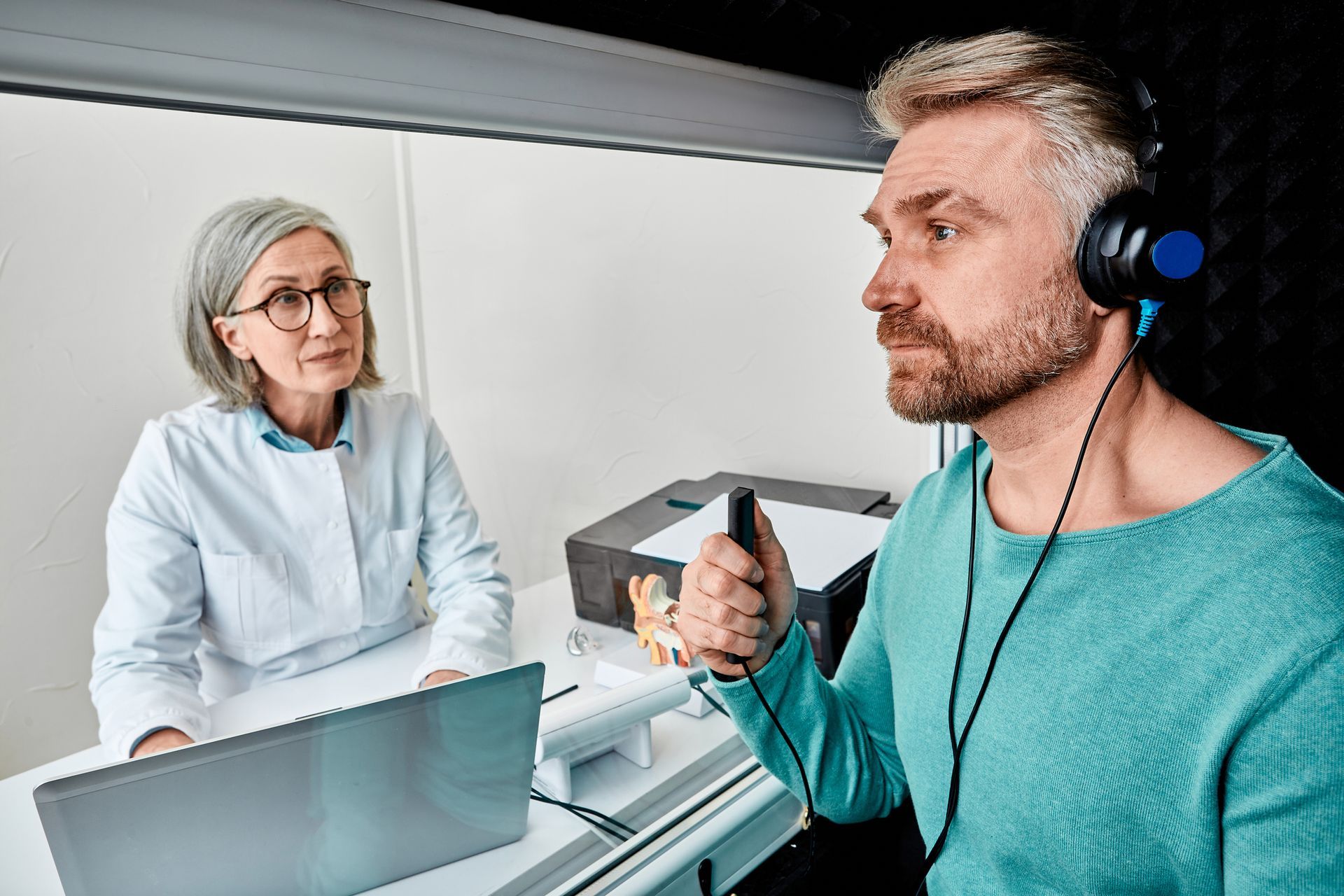DIABETES & ITS EFFECTS ON OUR HEARING & BALANCE
DIABETES & ITS EFFECTS ON OUR HEARING & BALANCE

If you’ve read any of my previous blogs and posts, you know that hearing loss not only compromises communication, but it makes those with hearing loss more susceptible to social isolation, fatigue, anxiety, and depression. Hearing loss also increases our risk of falls, cognitive decline/dementia, and hospitalization.
Since November is National Diabetes Month, I wanted to discuss how diabetes can affect our hearing and balance. Diabetes can lead to nerve damage that affects many parts of the body. Most of us know that diabetes can affect your hands, feet, eyes, and kidneys – but many do not know that it also affects your ears. The same microvascular changes which lead to nephropathy and retinopathy in diabetic patients most likely lead to damage in the microstructure of the cochlea (article by Erin Piker & colleagues).
The Audiology Project (TAP), an organization founded to raise awareness of the link between chronic disease and hearing and balance disorders, prompted the Centers for Disease Control (CDC) to consider recommendation for hearing testing to be included in the patient guide, Take Charge of Your Diabetes in 2016. Last year, the American Diabetes Association (ADA) recognized hearing loss in its referral criteria for initial diabetes care management in its Standards of Medical Care in Diabetes-2021.
Here are some facts you need to know:
Hearing loss is twice as common in persons with diabetes and can present itself earlier in life compared to those without diabetes.
Prediabetes (blood sugar levels higher than normal but not high enough yet to have type 2 diabetes) increases your risk of hearing loss by 30% compared to people with normal blood sugar levels.
Other comorbidities (cardiovascular disease, hypertension, neuropathies, etc.) can increase the risk of hearing loss even more.
Diabetes also affects our balance and doubles our chance of falling.
Recommendations:
The CDC now recommends a comprehensive audiological evaluation for all patients upon diagnosis of diabetes with retests annually.
This allows us to establish a baseline, and with periodic monitoring, it enables early identification so that Audiologists can provide education, prevention, and treatment/management strategies.
Ask yourself the following questions. If you answer “yes” to question 1 or 2 or “no” to questions 3 through 6, it is recommended you schedule a diagnostic audiological evaluation with an audiologist.
1. Do you or your family perceive any change in your hearing?
2. Do you have hearing difficulty in quiet or noise?
3. Have you had your hearing tested in the past 2 years?
4. Do you know how diabetes can affect your hearing?
5. Do you know what to do if you perceive a change in hearing?
6. Do you know how to reduce your risk for hearing loss?
If you are experiencing balance problems, report this to your doctor or call an audiologist for dizziness/balance testing. If you are a physician, a simple dizziness screening questionnaire can help in determining which diabetic patients need referrals for these types of evaluations.
What to do next:
Call 4 Bridges Audiology at (423) 521-3277 today and schedule your appointment to have your hearing evaluated if you have any of these symptoms, have diabetes, or prediabetes.
References and Links for More Information:
https://www.theaudiologyproject.com/latest-news/2021/10/10/the-cdc-and-ada-officially-recognize-diabetes-amp-hearing-loss
https://www.cdc.gov/diabetes/managing/diabetes-hearing-loss.html
https://static1.squarespace.com/static/5b7deefb1aef1dc9d406b2e8/t/5f52eede5ff56448e951280b/1599270634638/What+you+need+to+know+ADCES+9.2020.pdf
https://www.youtube.com/watch?v=jubm14tqBKU












